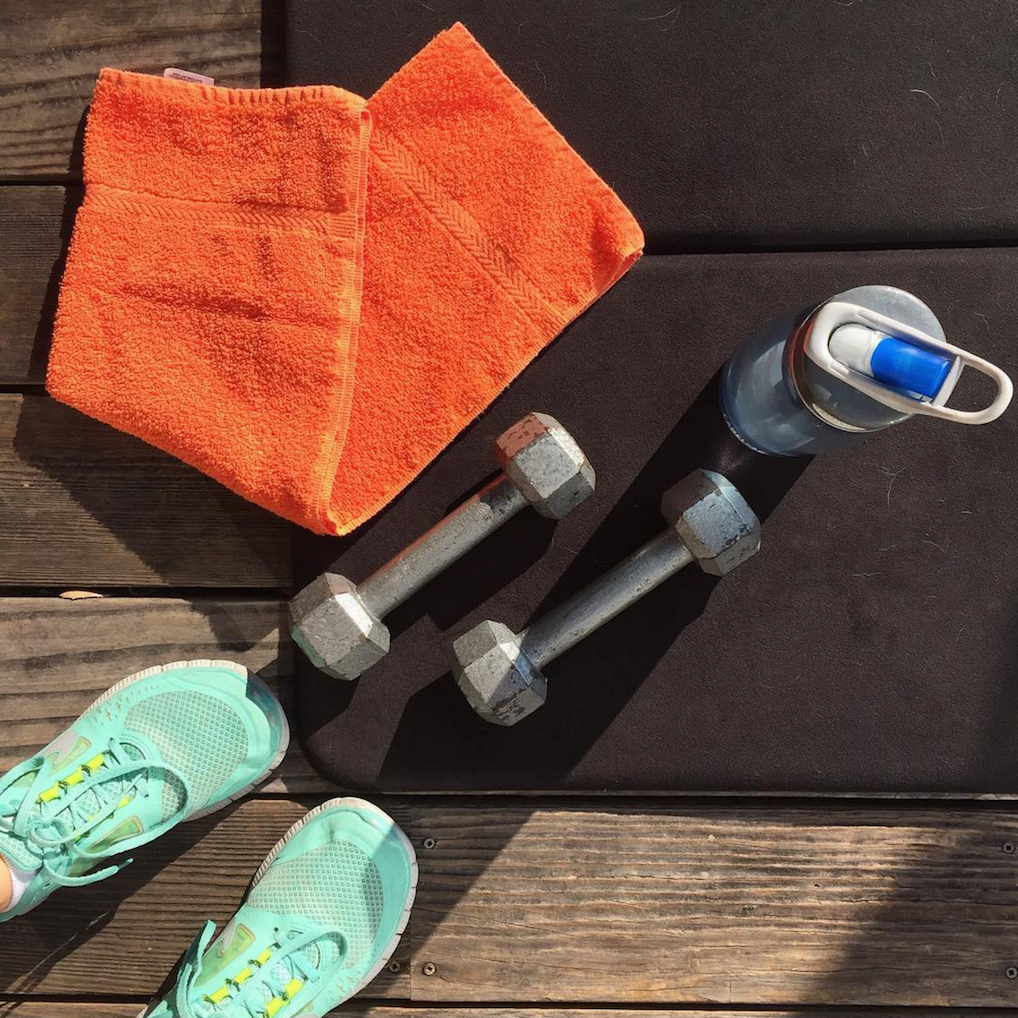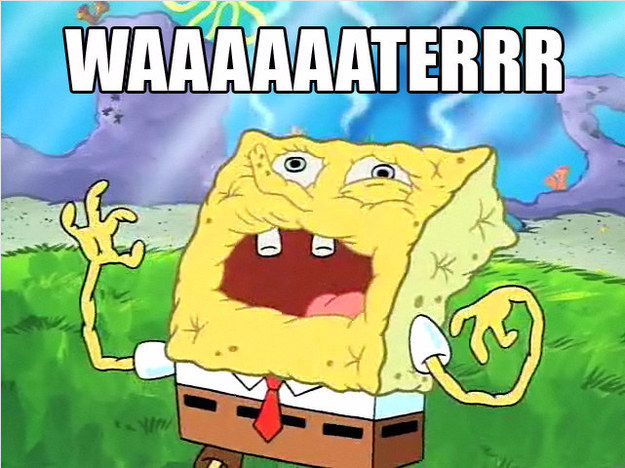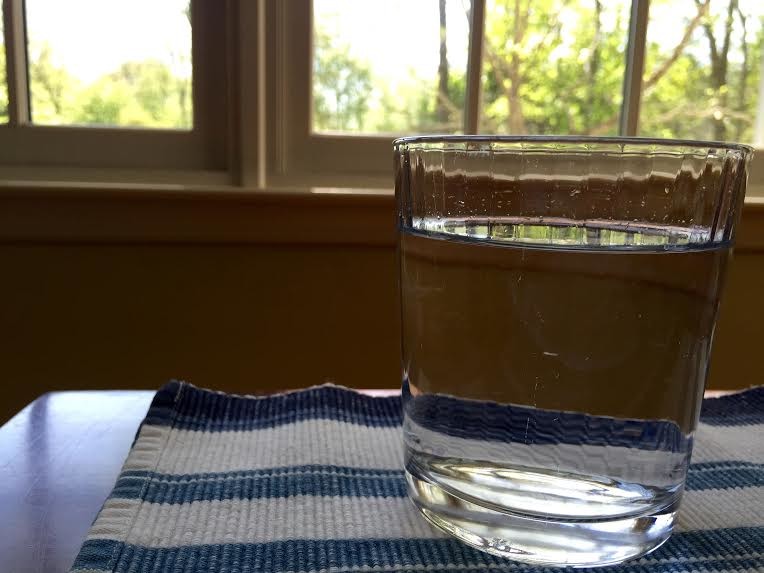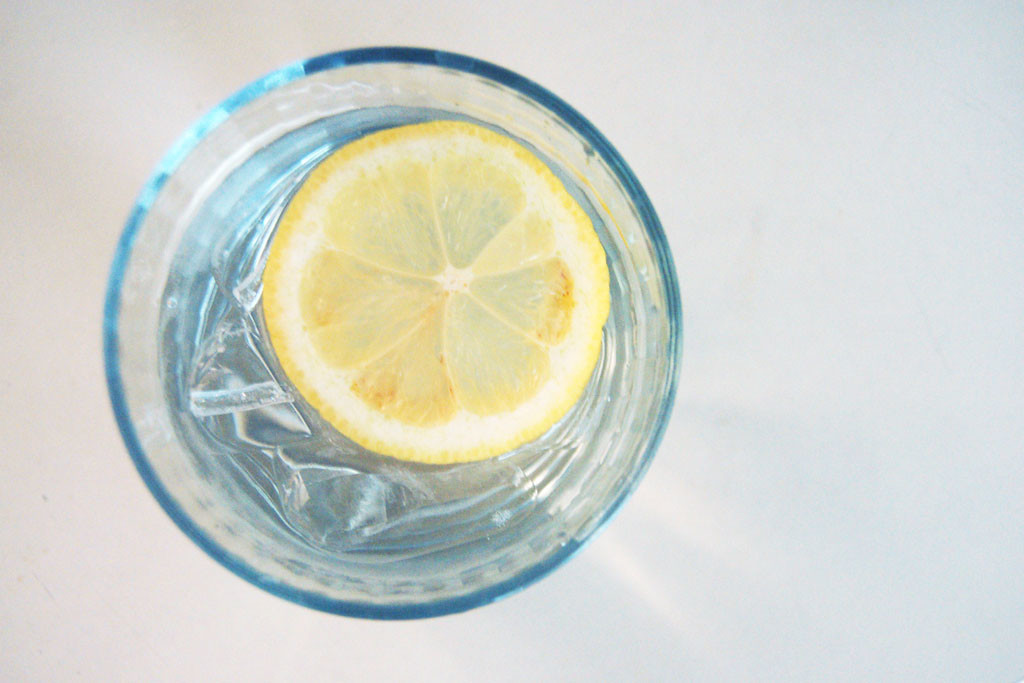With the exception of vampires, no one wants to exercise in a dark, dreary gym on a beautiful sunny and 75 degree summer day. Indeed, summertime means outdoor workouts; between running, swimming, hiking, biking, paddle boarding, playing tennis, the possibilities to get your sweat on outside are endless during the summer.

Photo by Nicole Lazlo
And the benefits of doing so are just as numerous. For example, you burn more calories running and biking outside than on a treadmill or stationary bike because of the varied terrain. Moreover, doing any type of exercise in fresh air, while getting a large dose of vitamin D, is proven to leave you feeling happier and more relaxed by the end of your workout.
However, despite its multitude of benefits, outdoors exercise in the summer does poses one threat– dehydration.

Gif courtesy of herb.com
So, how much water should you drink to avoid dehydration from a sweaty outdoor workout?
In short, the answer depends on several factors such as the time of day, how hydrated you were the day before, the level of intensity of the activity, what you’re wearing, and, obviously, the heat index that day.
Not all outdoor exercise is created equal in terms of a dehydration threat. An early run on a cool, crisp 60 degree summer morning won’t require the same water intake as, say, an outdoor boot camp class on the pavement on an 85 degree summer afternoon.
In general, though, regardless of your outdoor activity, it’s important to hydrate before, during, and after to prevent the nausea, headache, and lightheadedness that come with dehydration.

Photo by Abbey Fernandez
More specifically, Heather Nettle, the coordinator of exercise physiology services at the Cleveland Clinic in Ohio, suggests drinking at least two cups of water before exercise: one an hour beforehand and the second cup a half hour before. During exercise, aim for a half a cup every 15 minutes, but make sure to take small sips even if it’s tempting to chug. After, drink at least another two cups or more until your thirst is satisfied.
If you feel particularly sweaty after your outdoor workout, step on a scale to see exactly how much water weight your body lost. Then, be sure to replenish accordingly. You shouldn’t sweat so much that there was a drastic weight loss, but two to three pounds is normal in summertime heat.
Again, various factors affect your risk for dehydration. Some general guidelines, though, include wearing loose, light-colored exercise clothing (hello lululemon pastels), scheduling your outdoor workout for earlier in the day when possible, and making sure to be well hydrated the day or night before. In other words, exercising outside after a night of binge drinking is not recommended. Don’t learn the hard way.
It is basically a crime to exercise indoors in the summer when the weather is beautiful outside. The benefits to working out outdoors make it a no-brainer, minus the inevitable sports bra tan. However, beware of dehydration, which becomes more likely when you exercise outside. As long as you drink several cups of water before, during, and after your workout, as well as listen to your body throughout, you’re good to get your sweat on under the summer sun.

Photo by Caroline Liu


